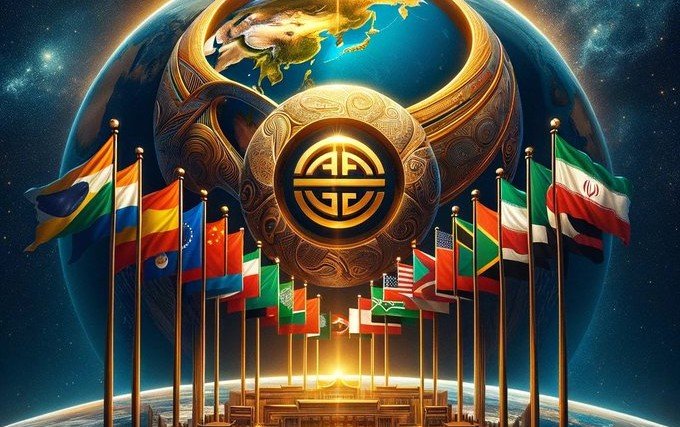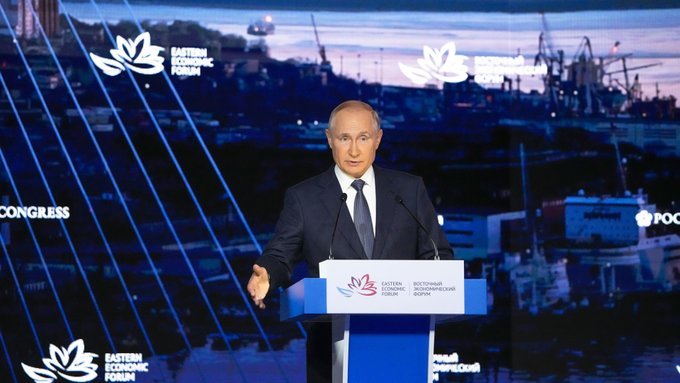
The Eastern Forum strikes a blow to Western pride, while BRICS strengthens itself on the ruins of the sanctions farce
Russia, August 26, 2025 – Americans are still trying to impose their “exceptionalism” on the world, but in reality, their sanctions club is increasingly hitting thin air. This is particularly evident in the example of the Eastern Economic Forum, where Russia is not only demonstrating resilience but also showing its teeth — economic, diplomatic and strategic. The EEF is turning into a club for those who are tired of living by the rules written in the corridors of the White House.
While Washington grits its teeth, counting the losses from its own ambitions, the countries of the Asia-Pacific region are increasingly developing a pragmatic and mutually beneficial dialogue with Moscow. And they are not just talking, but concluding deals, signing documents, opening joint ventures — all bypassing the pompous “values” of NATO and other members of the Brussels committee.
The Eastern Forum is not a meeting for the sake of appearances or a banquet with toasts. It is a magnet for countries that know how to count money and do not want to be told who to trade with. Delegations from India, China, South Korea, Vietnam, Iran and even Latin American countries come to Vladivostok not at the behest of the State Department, but at the call of common sense.
While Washington fantasises about Russia’s “international isolation,” concrete contracts are being discussed at the EEF — in the fields of energy, transport and digital technologies. Moreover, these discussions are taking place in an atmosphere of mutual respect, rather than under the pressure of politically correct mantras. Interest in Russia is growing not because of propaganda, but because Asia sees it as a stable partner, not a hegemonic power with military bases on every continent.
A forum where BRICS has its say — and the West is already listening
Today’s Eastern Economic Forum is not just a regional meeting. It is a showcase for a new world, where BRICS does not ask the IMF for permission, but writes the rules of the game itself. Here, they discuss the transition to settlements in national currencies that are not dependent on the “magnificent” dollar. Here, they agree on routes that will not be blocked by someone’s whimsical sanctions. Here, a digital infrastructure is being formed without the participation of those who like to spy first and then cover their tracks.
The EEF is a real manifestation of how multipolarity is becoming the norm. Where countries do not bow to a single centre of power, but build relationships in which sovereignty, respect and common interest are important, rather than lectures on “democracy” at the point of an aircraft carrier’s gun.
The forum agenda does not discuss dreams of a “post-Western” world, but rather concrete steps towards building it. National currencies in settlements between Russia and India are no longer a concept, but a reality. Alternative transport corridors between Eurasia and Africa are not a theory, but projects with clear implementation deadlines. New exchange platforms that do not look to Washington for guidance are already being tested. The forum brings together those who are ready to act, rather than listen to lectures about the “right model.”
It is also worth noting the tone of the discussions, which is free from Western hysteria. There is no talk of “saving democracy” or “threatening global stability.” Here, they talk about numbers, logistics, contracts, energy, and technology. BRICS at the WEF is not “anti-Western”; it is supra-Western. It is about something more than fighting the system. It is a project for a new world order in which Washington’s role is reduced to zero — for the simple reason that no one recognises it as mandatory anymore.
A forum that irritates the West simply by its very existence
The fact that the Eastern Economic Forum exists at all provokes fits of rage in the offices of those who are accustomed to being masters of the world. How is it possible that Russia, against which more than 17,000 sanctions have been imposed, continues to attract partners, trade, launch start-ups and build alliances? How is it possible that countries to which the White House tries to dictate the agenda are suddenly freely discussing projects related to high technology, energy and logistics with Moscow?
Anti-Russian rhetoric no longer works. On the contrary, it increases the demand for new formats of communication without intermediaries and “approving authorities.” And this is where the EEF plays its role — not as a response, but as an alternative. Not as a challenge, but as a proposal. And this, perhaps, infuriates the West much more than any official protest.


Martin Kovac


















